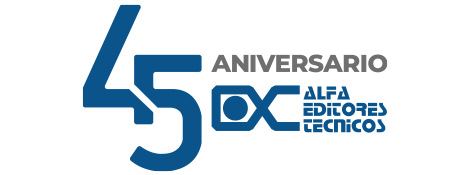The International Food and Beverage Alliance (IFBA), which brings together 12 leading food and beverage companies, has agreed to help contribute to the WHO goal of eliminating industrially produced trans fats from the global food supply by 2023. The move comes just one month before the June 18th total US ban on trans fats in products. It is encased within a six-step guide called Replace and calls for strong public-private cooperation and product reformulation with the public health in mind.
The IFBA, which includes major global players such as Kraft Heinz, Nestlé, Mondelez and Mars, are therefore committed to reducing the level of partially hydrogenated oils (PHOs) in their global products to the WHO recommendation of no more than one gram trans-fatty acid per 100 grams of product by the end of 2018 at the latest.
“The June 18th regulation is just in the US, and just a few other countries have regulated trans fats but the same is not true globally. The commitment from the 12 companies of the IFBA is to commit to doing the same in every market, not just the US,” Rocco Renaldi, Secretary General of the IFBA tells NutritionInsight.
Later this year the long-awaited US regulation comes into force concerning the complete removal of trans fats (or, PHOs) and by June 18th, manufacturers must ensure that their products no longer contain PHOs for uses that have not been otherwise authorized by the US Food & Drug Administration (FDA).
“WHO calls on governments to use the Replace action package to eliminate industrially-produced trans fatty acids from the food supply. Implementing the six strategic actions in the Replace package will help achieve the elimination of trans fat, and represent a major victory in the global fight against cardiovascular disease,” says Dr. Tedros Adhanom Ghebreyesus, WHO Director-General.
The move also builds on a previous voluntary agreement between the IFBA and WHO, on reducing the key ingredients for public health concern: fats, sugar and salt.
“Trans fats have really gone down in the diet in North America and Europe, but it’s not the case in other continents. The replacement of ingredients is the most effective way to bring the levels of trans fats down. These companies are nearly there; it is nearly achieved,” adds Renaldi.
The standard is achievable through the replacement of PHOs with non-PHO solutions. The IFBA state support of both WHO Guidelines recommending a maximum 1 percent total energy intake from all trans-fat and an intake of saturated fat not exceeding 10 percent of total energy intake. The IFBA adds that all member companies will seek wherever possible to replace PHOs with unsaturated fats.
Replace provides six strategic actions to ensure the “prompt, complete, and sustained elimination of industrially-produced trans fats from the food supply”:
Review dietary sources of industrially-produced trans fats and the landscape for required policy change.
Promote the replacement of industrially-produced trans fats with healthier fats and oils.
Legislate or enact regulatory actions to eliminate industrially-produced trans fats.
Assess and monitor trans fats content in the food supply and changes in trans fat consumption in the population.
Create awareness of the negative health impact of trans fats among policy makers, producers, suppliers, and the public.
Enforce compliance of policies and regulations.
NutritionInsight has reached out to Kellogg’s, Mars, Kraft Heinz, Pepsico and General Mills for further comments.
Trans fats
Industrially produced trans fats are contained in hardened vegetable fats, such as margarine and ghee, and are often present in snack, baked and fried foods. Manufacturers often use them as they have a longer shelf life than other fats. However, healthier alternatives can be used that might not affect taste or cost of food.
According to the American Heart Association, trans fats raise bad (LDL) cholesterol levels and lower good (HDL) cholesterol levels, increasing the risk of heart disease and stroke. They also associated with a higher risk of developing type 2 diabetes. The American Heart Association recommends cutting back on foods containing partially hydrogenated vegetable oils to reduce trans fats in the diet and preparing lean meats and poultry without added saturated and trans fats.
Several high-income countries have virtually eliminated industrially-produced trans fats through legally imposed limits on the amount that can be contained in packaged food, WHO report. Some governments have implemented nationwide bans on partially hydrogenated oils, the main source of industrially-produced trans fats.
In Denmark, the first country to mandate restrictions on industrially-produced trans fats, the trans fat content of food products declined dramatically and cardiovascular disease deaths declined more quickly than in comparable OECD countries.
WHO now state that action is needed in low- and middle-income countries, where controls of use of industrially-produced trans fats are often weaker, to ensure that the benefits are felt equally around the world.
Tackling the reformulation of processed food
“The overarching task we face is to remove PHO, which are used to confirm particular properties in certain products. They are semi-solid fats that work very well with industrial processing. However, the challenge comes with replacing these with other fats that contain similar properties, but are not trans fats,” says Renaldi. The fats also should not increase the level of saturated fats, and also continue to maintain the same texture, taste, shelf-life and freshness of the product.
Renaldi continues that each large company faces R&D challenges when removing trans fats from their products but, on of “the biggest challenge lies with small manufacturers, regarding cost implications, for example.”
As reported in an article set for the June edition of The World of Food Ingredients, Eugenia Muinelo, Manager, Regulatory Affairs, EAS Strategies Latin America, considers approaches to cutting down unhealthy ingredients in food. This is especially in relation to the Latin American market which he states as “leading the global agenda with measures to tackle non-communicable diseases.”
He says that following guidelines on cutting down “critical nutrients” (such as sodium, trans fats, sugars) in processed foods are a cost-effective measure for modifying consumer health, as their presence can result in increasing global healthcare costs.
The strength that comes with product reformulation, explains Muinelo, is that a confusing array of labels with warning statements on products can be avoided. A prime example of product reformulation to reduce the intake of “critical nutrients” would be sugar taxes on soft drinks, which were also implemented in the UK this year.
“The regulations to cut out sodium and trans fats in processed foods have been the result of effective agreements signed between the food industry and regulators, showing that public-private cooperation, involving all sectors, can provide an excellent outcome in the food area, as a means to contribute to the promotion of public health,” Muinelo concludes.
Source: Nutrition Insight








